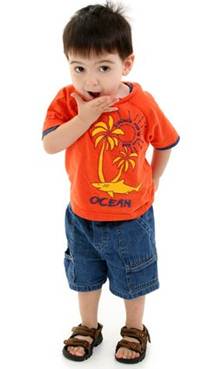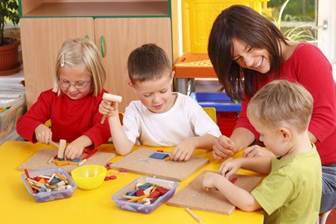The intervention of parents
“Child care nowadays is different from the past. Now
children more frequently various kinds of foods and drinks, for example they
drink not only water but also juice and milk” – Sarah Hulland, dentist – “These
types of snack foods brought many terrible consequences to teeth.”
After witnessing two children who have cavities filled
several times, Jeni Marinucci has to force her children to brush in the middle
of the day and supplement flour mouthwash as well as control their snacking
habit. Sofia – 13 years old and Nicolas – 7 years old get used to eating
vegetables and drinking water in the midst of meals instead of fruit candy or
chocolate and juice. Although Marinucci joked that she had to send 3000USD for
dentists to ensure the perfect teeth care for her kids, but in fact, the result
is very good. Her children’s teeth are improved. She said, “It’s great to
succeed in taking care of their health, especially their teeth.”
Our culture attaches much importance to the beauty of white
teeth and bright smile, so a 4-year-old child who has tooth decay may hurt his
parents, but it’s not totally parents’ fault, because they need to know the
connection between the habit of teeth care and the nature of their children’s
teeth. Also, you have to remember that teaching your children the habit since
they are little always bring more effects than teaching them when they are
matured. There are dental care methods for different ages below:
Infants

Infants
“This is the ideal time to form the habit” – Mary Bertone, a
member of Canadian Dental Care Association. Bertone is also the expert who
educates parents about dental care for children at the University of Manitoba.
Bertone said: “What you need is cleaning your children’s mouths with a piece of
soft cotton several times a day after meals. Once the first tooth appears, wipe
it 2 times per day by a brush which is as small as your finger. You don’t need
to use toothpaste, just rub the tooth gently by cloth.
CDA encourages parents to take children to the dentist
within 6 months or 12 months since the first tooth comes up. Absolutely never
allow children sleep with breast milk, cow’s milk, sugar or sweeteners in their
mouths because these substances will last long. Let your children drink a glass
of water instead.
Toddlers (1 – 2 years
old)

Toddlers
Milk-teeth will be formed at this stage, so parents need to
brush children’s teeth 2 times per day by soft brushes. Brush a circle on the
surface of teeth, along the teeth and tongue. Give children who have a risk of
ECC an amount of toothpaste containing small grains of flour. This amount would
be negligible if the baby swallow but it’s sufficient to cover entire teeth. In
case you are not sure, ask your dentist.
If children resist brushing, try letting them listen to
music or watch TV while brushing. You can also try changing the roles between
mother and baby to brush teeth. If these options are not effective, use psychotherapy
to compare brushing to changing diapers, telling children that changing diapers
before sleeping is like brushing teeth before going to bed.
Children in
kindergarten (3 – 5 years old)

Children in
kindergarten
At this age, children can brush themselves but they have to
ask for a help of adults. You can use the tips “let father/mother see if you
have tooth decay” to check if your children brush teeth carefully in the
morning and before sleeping. If your children don’t have the habit of brushing,
begin with brushing teeth with a little amount of toothpaste containing flour.
Remember to check regularly the frame of children’s teeth. If there are pieces
or different color spots, your children may have tooth caries. In case
milk-teeth grow sufficiently and the spacing is sparse, please guide them to
floss.
Absolutely be careful with children’s snack foods, avoid
sweeteners, focus on fruits, vegetables and water during meals.
School children (over
6 years)

School children
Permanent teeth and molars are formed in this age and children
are dreaming of meeting tooth fairy. This is the important stage and it’s
necessary to brush teeth carefully when permanent teeth appear. Parents should
maintain the habit to help children brush teeth and floss two times per day
till they are 7 or 8 years old.
This age has a habit of eating more sweets and they are not
motivated to brush regularly. You can control this by threatening them that
everyone isn’t interested in decay and smelly teeth. The automatic toothbrush
or timer may help you extend the time your kids brush (according to the survey,
ideal time of brushing is 2 minutes but children usually only brush in 40
seconds).